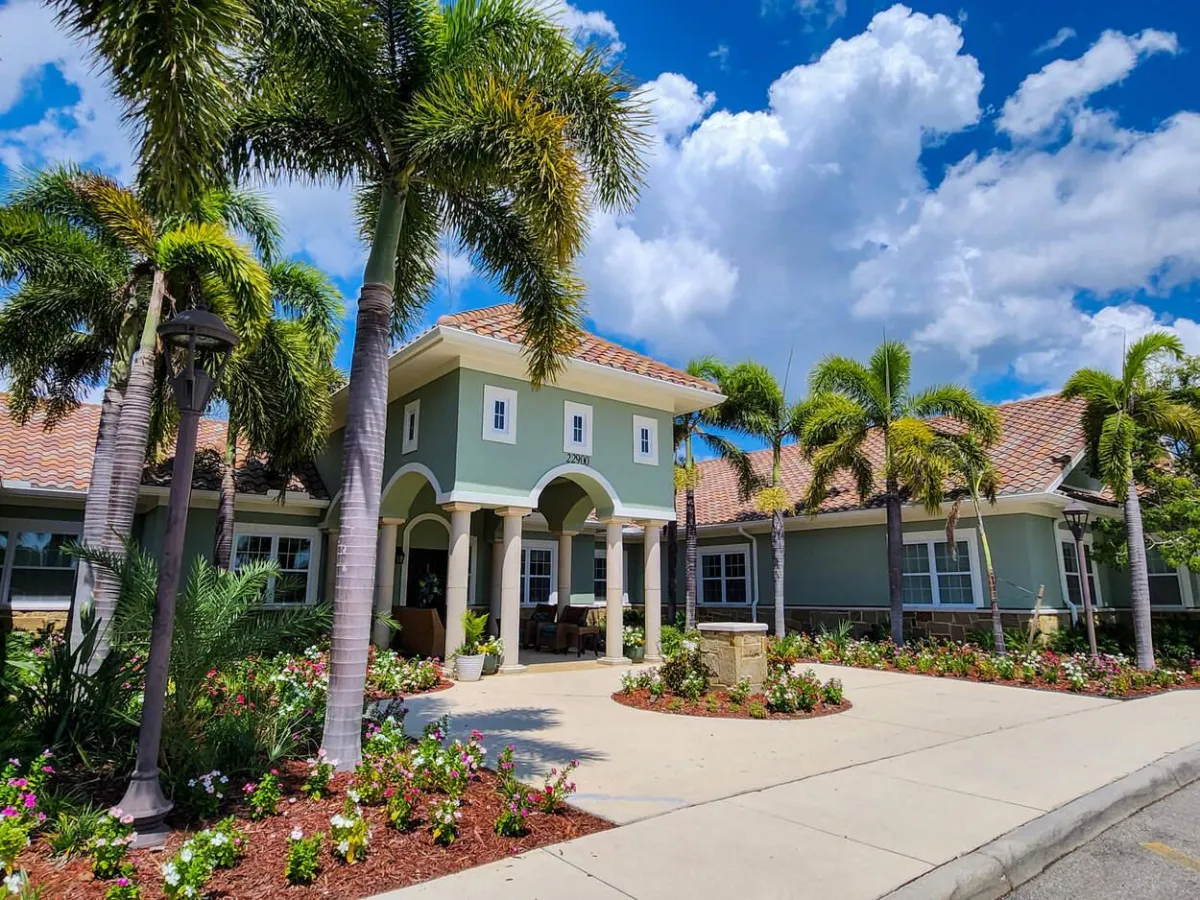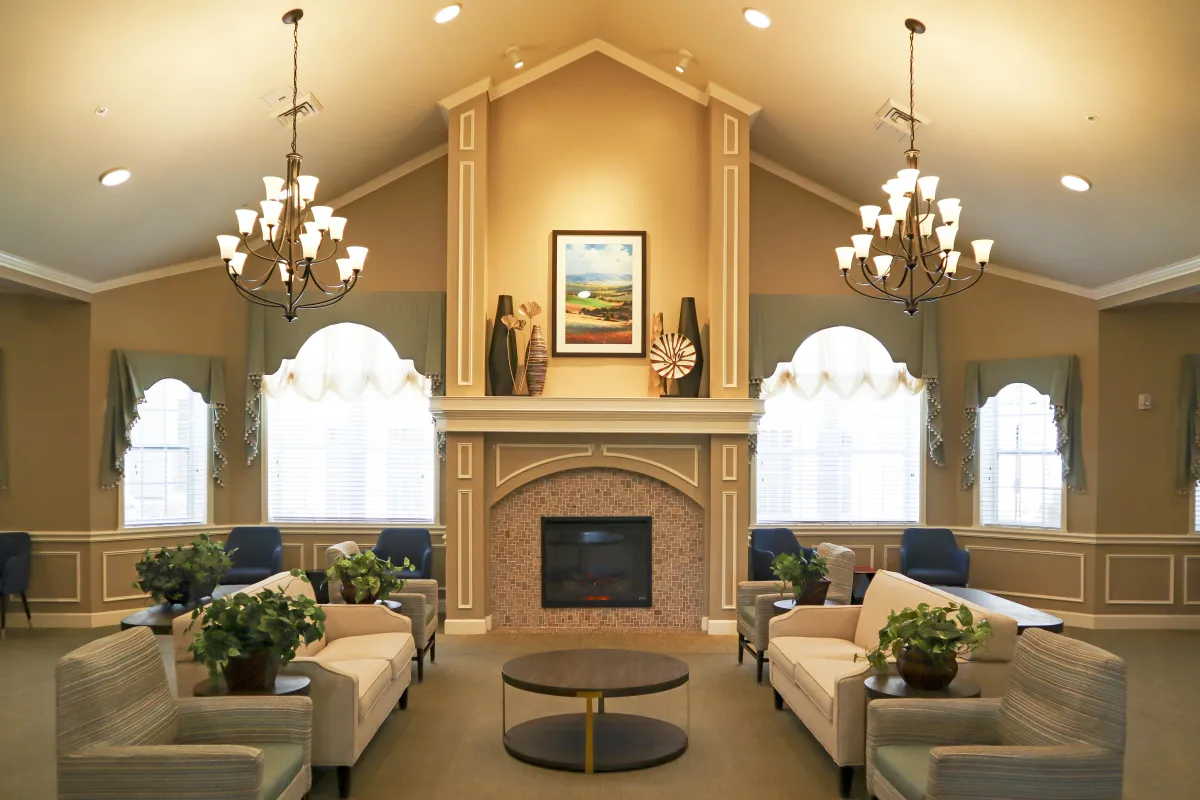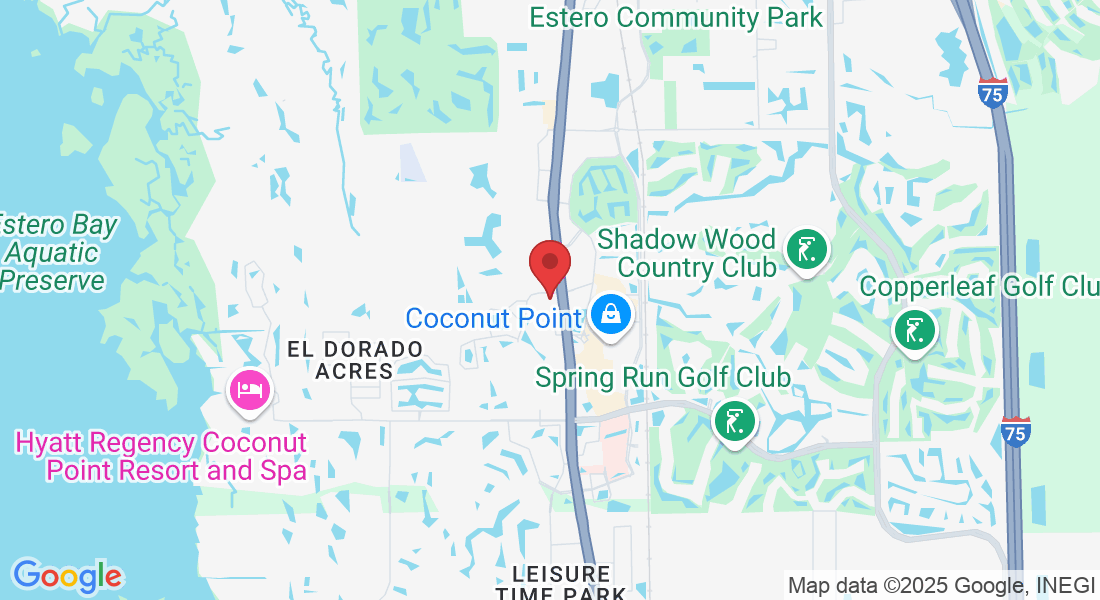About The Community
Here, you will discover a friendly Respite Care, Memory Care, Alzheimer's Care, and community where every day is celebrated with delicious meals, fun and enriching activities, and an inviting atmosphere that feels like a family get-together. See for yourself and take a virtual tour of our community.
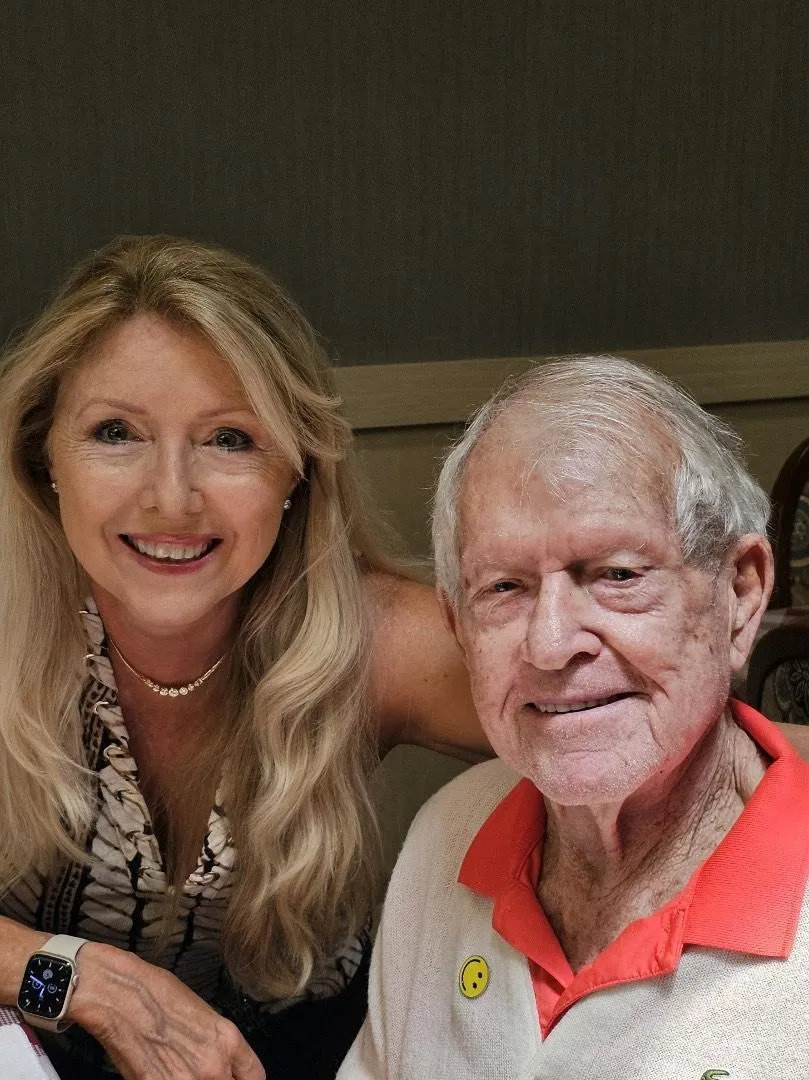
"Gulf Coast Memory has been a blessing for my Father as well as our family. The staff is very caring and compassionate and treat the residents like family. My Father refers to GC as his home and the peace of mind that gives to my family and I is priceless."
Your family's freedom to thrive is our top priority.

Personalized Memory Care in Estero
Our community is designed with comfort and security in mind, featuring private suites, tranquil common areas, and secure outdoor spaces. Every detail supports the dignity and independence of our residents, while offering peace of mind to families.
24/7 on-site care and support
Staff specially trained in dementia care
Personalized daily routines
Family involvement and communication
Engaging Daily Activities That Promote Well-Being
Cognitive stimulation, connection, and joy are essential to our residents’ quality of life. Our structured activity programs are crafted to support memory retention, mobility, and emotional well-being.
Art and music therapy
Group and one-on-one activities
Physical and mental stimulation
Brain fitness and memory training

Meals Made With Care, Just Like Home
Every meal is thoughtfully prepared with fresh ingredients. Our culinary team creates comforting, home-style dishes that support each resident’s health and well-being. We accommodate personal tastes and dietary needs, making mealtime both nourishing and enjoyable.
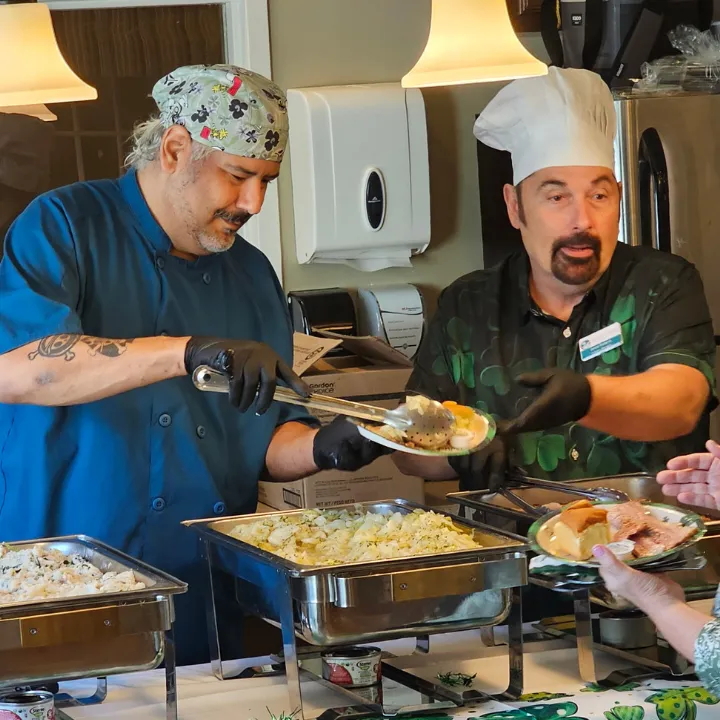
Private, Comfortable Living Spaces for Seniors
Residents enjoy spacious private suites thoughtfully designed for both comfort and safety. Every element, from calming color palettes to personalized decor, helps create a familiar and soothing environment. Each suite features individual climate control, emergency response systems, and an adaptive layout to support accessibility.
Housekeeping and laundry services are included, ensuring a clean, stress-free living space tailored to each resident’s needs.


Smart Wellness Technology
Gulf Coast Memory Care offers Amba Smart Wellness Technology in select rooms, providing discreet monitoring of sleep, movement, and vital signs. With no cameras or microphones, this passive system alerts our care team to unusual activity—supporting early intervention while preserving privacy and independence.
Monitors sleep patterns and vitals
Tracks nighttime movement
Sends alerts for unusual activity
Maintains privacy at all times
Additional Resources

From Correction to Connection: How To Communicate With Loved Ones With Memory Loss
Communicating with a loved one who has memory loss can be emotionally exhausting. What used to be simple conversations now involve repeated questions, forgotten names, and emotional confusion. Many families try to help by correcting the person, reminding them of the facts, or pointing out what’s “real.” But correction rarely works. It can make things worse.
The goal isn’t to win an argument or bring someone “back to reality.” It’s to maintain connection, reduce frustration, and build trust. This shift from correction to connection is the foundation of better dementia communication.
Why Traditional Communication Breaks Down
Memory loss affects more than just memory. It impacts how a person processes language, recognizes tone, and interprets intent. When someone with dementia asks, “Where’s my mom?” they may be experiencing a real emotional need, not testing your memory.
Correcting them with, “Your mom passed away years ago,” can cause grief, fear, or anger every single time it’s repeated. These responses often increase confusion, break emotional trust, and escalate distress.
To improve communication, it’s essential to let go of the need to correct and instead respond in ways that create safety and understanding.
Shifting from Correction to Compassion
Effective communication with someone experiencing memory loss isn’t about teaching; it’s about meeting them where they are. Here’s what works:
Stay present and calm: Even when answers are repeated.
Respond to feelings, not just words: Someone asking for a parent may be expressing fear or needing comfort.
Prioritize emotional connection: Do this as opposed to obsessing over factual accuracy.
Accept repetition and confusion: Remember, these are symptoms, not choices.
This shift reduces frustration for everyone involved and makes communication more effective.
Practical Communication Tips
Here are specific memory loss care tips that families can use right away:
Use simple, direct language. Speak in short sentences. Avoid multiple ideas at once.
Maintain eye contact and use gentle, relaxed body language.
Ask yes/no or either/or questions instead of open-ended ones.
Repeat or rephrase as needed, without saying “I already told you.”
Use visual reminders like photos, labeled drawers, or written notes to support recall.
Redirect rather than argue. If someone insists it’s time to go to work, try: “What did you love most about your job?” instead of “You’ve been retired for years.”
These methods protect dignity and keep the conversation focused on connection.
The Role of the Environment
How and where you communicate also matters. A calm, distraction-free environment can make a major difference. Here’s how to set the stage:
Turn off TVs or background noise.
Sit at eye level.
Speak slowly and clearly without raising your voice.
Watch for signs of fatigue or overwhelm and take breaks if needed.
Use music, gentle touch, or familiar objects to create comfort.
The goal is to reduce overstimulation and allow the person to focus fully on the conversation.
Common Situations and Better Responses
Understanding what not to say is just as important as knowing what works. Here are some real-life examples:
Situation: “I need to pick up the kids from school.”
Avoid: “You don’t have kids at home anymore.”
Try: “You’ve always taken great care of your family. What were your kids like when they were little?”
Situation: “I want to go home now.”
Avoid: “You are home. You’ve lived here for years.”
Try: “Tell me about your home. What did it look like?” or “Let’s sit together a while, then we’ll figure out what to do.”
Situation: Repeating the same question every few minutes
Avoid: “You keep asking me the same thing.”
Try: “That’s a good question. Let me tell you again.”
These answers shift the conversation away from correction and toward validation, keeping the person calm and connected.
When It’s Time to Ask for Help
When communication becomes overwhelming or starts affecting the person’s well-being, or your own, it may be time to look for support. Memory loss can reach a point where professional care becomes essential.
At Gulf Coast Memory Care, every team member is trained in dementia-specific communication. This includes nonverbal techniques, validation strategies, and redirecting conversations without triggering distress. We create a predictable environment where residents feel understood, not corrected.
For families, that means less stress, more peace of mind, and the comfort of knowing your loved one is being supported in ways that protect their dignity.
Communication Is Ongoing
There’s no one-size-fits-all approach to dementia communication. What works today may not work tomorrow. That’s why the key is flexibility, empathy, and presence. When you stop trying to fix or correct and start trying to connect, everything changes.
Even in the face of memory loss, meaningful interaction is still possible. Your words and how you say them can bring calm, joy, and connection, even in the most difficult moments.
Final Thoughts
Improving dementia communication doesn’t require specialized training. It just takes the willingness to shift from being “right” to being present. These small changes, how we listen, how we respond, how we redirect, can make a big difference.
If you’re looking for more personalized support, Gulf Coast Memory Care offers expert guidance and a team trained in compassionate, connection-focused dementia care. Contact us today to learn more.

Gulf Coast Memory Care
(239) 221-6120
22900 Lyden Dr, Estero, FL 33928
AL# 12921


